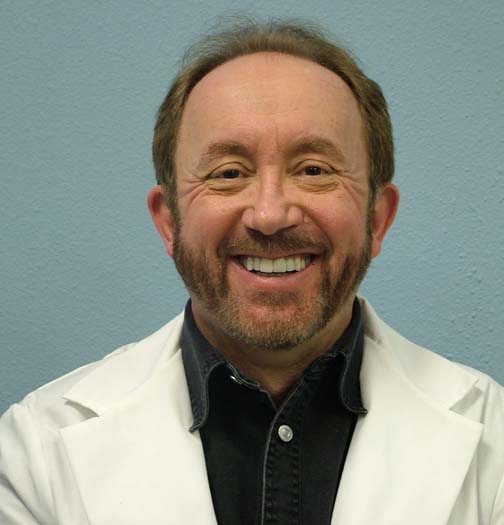


|
|
|
|
DENTURES Dentures are plastic devices intended to replace teeth and help a person chew, look better, sound better and improve their self-esteem. We try to make the dentures as functional and natural as possible. If you have had dentures before, our denture specific questionnaire will help determine what you liked and disliked about any earlier dentures to help us make a more comfortable and attractive denture. A lot of people do very well with their dentures and have few problems with them. More people have problems with their dentures than they expected to have and often regret their decision to have their teeth extracted. If you still have even some of your teeth I recommend that you keep at least a few teeth especially on the bottom. They will help keep the lower denture from moving or floating. A lot of people donít wear or even carry their lower denture. The lower denture is most often the problem denture and sometimes the only remedy is placing implants in the jaw that the denture can attach to. Some people have been known to spend tens of thousands of dollars getting implants to replace their dentures because they are that unhappy with them. It is estimated that even a good set of dentures only allows for 10% of the chewing efficiency of original teeth. If you are someone who can not be seen in public without your teeth, our best advice is to have a decent backup set of dentures and take them with you when you travel. One of my patients lost her upper teeth when a wave her just right. The teeth came out and some crab somewhere has one heck of a smile. Needless to say, the rest of her vacation was ruined as she didnít want to eat in public, let alone be seen. How embarrassed would you have been? For appearance sake, I often recommend slightly turning one of front teeth a hair or having it stick out just a touch. One of the giveaways of wearing dentures is how the teeth look too much the same. MORE DENTURE FACTS AND ADVICE Once your teeth have been extracted, the bone that held the teeth in no longer has anything to do, and it shrinks in most people. On the upper, it moves up and in, on the lower it moves down and out. At the same time, the teeth on the denture wear as well. The result is an older looking face with more wrinkles. Itís a good idea to replace your dentures every six to seven years to slow the growth of the wrinkles, which once there, are almost impossible to get rid of. If too much time passes, the lips grow thin and flatten and deep diagonal lines will from near the corners of the mouth. When this happens, the muscles slowly shorten and you wonít be able to return to the earlier shape and length of your face. There are three important parts to dentures fitting and working well. SUPPORT describes how well the underlying gums and cheeks keep the denture from moving INTO the jaw in question. RETENTION describes how the dentures moves vertically opposite to the jaw. STABILITY describes how the denture moves side to side or front to back. Often times this is all related to how much bone was left after the extractions. Patients with gum problems often have less bone from the start. As you lose bone over time, all three characteristics will get worse with time, though retention can often be helped with adhesives. The stability will not be greatly improved and suction can be broken by eating and even talking. IMMEDIATE DENTURES Sometimes someone insists on having their teeth extracted and the dentures inserted at the same time. Sometimes it works fine, sometimes it doesnít. The best way to have a denture fit well is to have no teeth present for the impressions. Without having an opportunity to try in the denture, there is no way to be certain what the appearance or bite will be like. Even if it is a successful immediate denture, all of the jaw tissue will continue to shrink, leading to a loose denture requiring a reline. Ninety percent occurs in reline. Highly recommend making a brand new denture at two years totally independent of the normal five year insurance waiting period. If you have to have an immediate denture made, consider having the back teeth extracted allowing enough time for the jaw and gums to heal and support the new denture. |
|
|
|
||